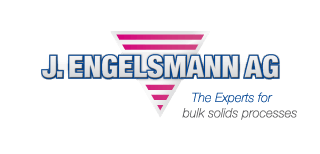1940-1966 Ongoing bombings during the Second World War cause major damage. By the end of the war, 70% of the company is destroyed. It is not until the company is rebuilt that advancement of the current business can be considered. Because the era of the millstone is definitely over, Engelsmann now focuses on the dawning age of plastics. Furthermore, larger dimensions for the machines and a higher degree of precision are in demand. The main focuses of production shift to the manufacture of laboratory devices and mixing machines such as the drum hoop mixer, which is developed in the early 60’s, and screening and sorting machines as well.
1940-1966 Ongoing bombings during the Second World War cause major damage. By the end of the war, 70% of the company is destroyed. It is not until the company is rebuilt that advancement of the current business can be considered. Because the era of the millstone is definitely over, Engelsmann now focuses on the dawning age of plastics. Furthermore, larger dimensions for the machines and a higher degree of precision are in demand. The main focuses of production shift to the manufacture of laboratory devices and mixing machines such as the drum hoop mixer, which is developed in the early 60’s, and screening and sorting machines as well.

















